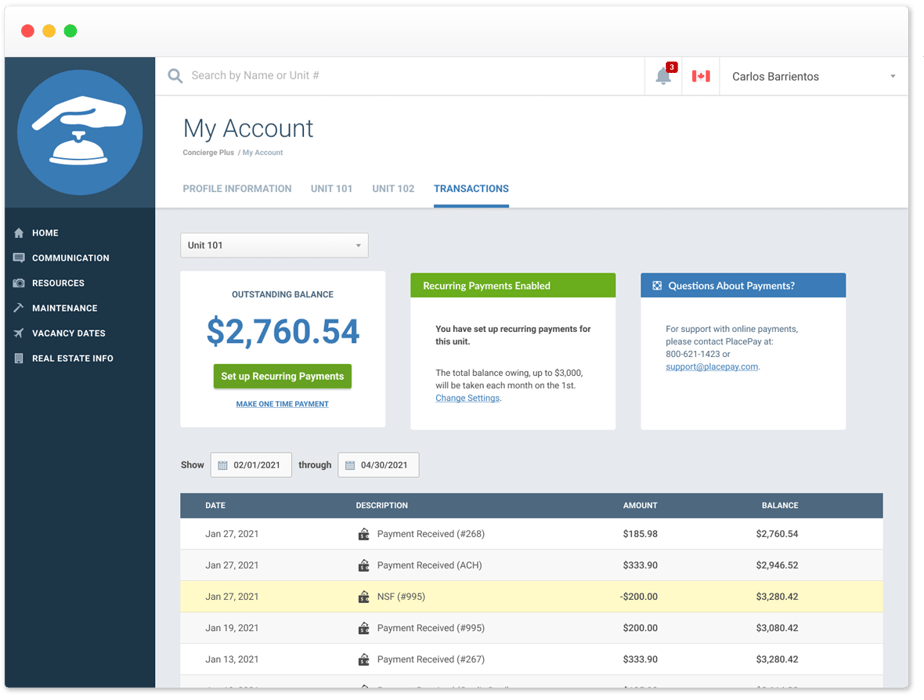COVERING YOUR ASSETS – HOW TO AVOID BOARD MEMBER LIABILITY by Becker
COVERING YOUR ASSETS – HOW TO AVOID BOARD MEMBER LIABILITY
View all of our events:
UPCOMING ONLINE CLASSES
If you agreed to serve on your board, you will want to be sure you have the tools and information necessary to understand your responsibilities, discharge your duties in accordance with the applicable law and your governing documents, and avoid any potential liability associated with your new role.
Participants in this class will learn:
- The fiduciary duty of a board member to the association
- How to protect the association and themselves from liability while conducting association business
- The most frequent mistakes made by board members
You can also find these and many other events on The State of Florida Property Management Association’s
Upcoming Events: List
BUDGETING & RESERVES / Becker
BUDGETING & RESERVES 1 hour class 1 IFM Credit or 1 ELE Credit Provider #0000811 / Course #9630156 When creating a financial plan for your association there are many things to consider. Join Becker attorneys as they discuss the steps it takes to create and maintain a successful budget and reserve plan. Topics we will cover include: Budget Planning Components of a Budget Calculation of Assessments Adopting The Budget Reserve Requirements & Use of Funds Straight Line Reserve Calculations
Preparing for Hurricane Season (Association Leadership Episode 10)
Preparing for Hurricane Season (Association Leadership Episode 10) 12:00 pm-1:00 pm 06/15/2022 RSVP HERE!
TAKE A BITE OUT OF FRAUDULENT ASSISTANCE ANIMAL REQUESTS / Becker
TAKE A BITE OUT OF FRAUDULENT ASSISTANCE ANIMAL REQUESTS Provider #0000811 | Course #9630287 | 1 ELE Credit Participants will learn about the Fair Housing laws on the state, federal and local level that impact community operations and actions with respect to requests to maintain emotional support animals on the property despite pet or animal restrictions. Some topics to be discussed: Fair Housing Act and Disability Accommodations Evolving Law of “Prescription Pets” Establishing a Handicap Competing Definition of Service Animal Under ADAAA and FHAA What to do When the Disability is Not Obvious What a Disabled Person Needs to Provide in Order to Own a Service Animal Innate Qualities of Service Animal Failing to Make Reasonable Accommodations and Modifications What to do when “Skeptical” Information is Provided Damages and Penalties for Discrimination This course is approved by Community Association Managers International Certification Board (CAMICB.org) to fulfill continuing education requirements for the CMCA® certification
Condo Craze & HOA’s” (RADIO SHOW) on 850AM/WFTL & YouTube with Eric Glazer Sundays 11am-12noon.
Condo Craze & HOA’s” (RADIO SHOW) on 850AM/WFTL & YouTube with Eric Glazer Sundays 11am-12noon. Eric M. Glazer Eric Glazer graduated from the University of Miami School of Law in 1992 after receiving a B.A. from NYU. He has practiced community association law for more than 2 decades and is the owner of Glazer and Sachs, P.A. a five attorney law firm with offices in Fort Lauderdale and Orlando. Eric is Board certified by The Florida Bar in Condominium and Planned Development Law and the first attorney in the State that designed a course that certifies both condominium and HOA residents as eligible to serve on a Board of Directors and has now certified more than 20,000 Floridians all across the state. Mr. Glazer is certified as a Circuit Court Mediator by The Florida Supreme Court and has mediated dozens of disputes between associations and unit owners. Eric also devotes significant time to advancing legislation in the best interest of Florida community association members. View the show details
CONDO SOLUTIONS (RADIO SHOW) on WSTU 1450 am
CONDO SOLUTIONS (RADIO SHOW) on WSTU 1450 am Mondays (9 am – 10 am) by Peter Mollengarden, Esq of KBR Legal Peter Mollengarden, Esq. on ‘Condo Solutions’ Live on Mondays, from 9:05am to 10:00am. Join Kaye Bender Rembaum attorney Peter C. Mollengarden and CPA Mark Brechbill every Monday and call in live with your community association-related questions. The number is 772-220-9788. This is available locally in Martin and St. Lucie counties on 1450 AM, or online at WSTU1450.com
Legislative Update Webinar featuring Michael Bender
WEBINAR FloridaLegislative Update Webinar featuring Michael Bender Join Campbell Property Management and Attorney Michael Bender from Kaye Bender Rembaum for this Legal Update Webinar. 12:00 pm-1:15 pm 06/21/2022 Campbell Property Management Join Campbell Property Management and Attorney Michael Bender from Kaye Bender Rembaum for this Legal Update Webinar. RSVP HERE This webinar does not include CEU credits. Be sure to ask your question about legal updates when you register. We will do our best to answer as many questions as possible. Board Members who attend will learn about law changes that may impact their community associations in Florida.
Conducting Meetings & Getting The Work Done
Royale Management Services 2319 N Andrews Avenue, Fort Lauderdale, FLConducting Meetings & Getting The Work Done The presentation will begin promptly at 6:00 PM. For Reservations Click On The Class Name and Register On the Zoom For Questions Call 954-563-1269 These seminars will be presented by the president of Royale Management Services, Steven J. Weil, PhD, EA, LCAM. Dr. Weil is a Florida Licensed Manager, he is Enrolled to Practice Before the IRS and has appeared on Good Morning America. He is regularly quoted in a number of community association professional publications .
Condo Craze & HOA’s” (RADIO SHOW) on 850AM/WFTL & YouTube with Eric Glazer Sundays 11am-12noon.
Condo Craze & HOA’s” (RADIO SHOW) on 850AM/WFTL & YouTube with Eric Glazer Sundays 11am-12noon. Eric M. Glazer Eric Glazer graduated from the University of Miami School of Law in 1992 after receiving a B.A. from NYU. He has practiced community association law for more than 2 decades and is the owner of Glazer and Sachs, P.A. a five attorney law firm with offices in Fort Lauderdale and Orlando. Eric is Board certified by The Florida Bar in Condominium and Planned Development Law and the first attorney in the State that designed a course that certifies both condominium and HOA residents as eligible to serve on a Board of Directors and has now certified more than 20,000 Floridians all across the state. Mr. Glazer is certified as a Circuit Court Mediator by The Florida Supreme Court and has mediated dozens of disputes between associations and unit owners. Eric also devotes significant time to advancing legislation in the best interest of Florida community association members. View the show details
CONDO SOLUTIONS (RADIO SHOW) on WSTU 1450 am
CONDO SOLUTIONS (RADIO SHOW) on WSTU 1450 am Mondays (9 am – 10 am) by Peter Mollengarden, Esq of KBR Legal Peter Mollengarden, Esq. on ‘Condo Solutions’ Live on Mondays, from 9:05am to 10:00am. Join Kaye Bender Rembaum attorney Peter C. Mollengarden and CPA Mark Brechbill every Monday and call in live with your community association-related questions. The number is 772-220-9788. This is available locally in Martin and St. Lucie counties on 1450 AM, or online at WSTU1450.com










 Shareholder
Shareholder

















